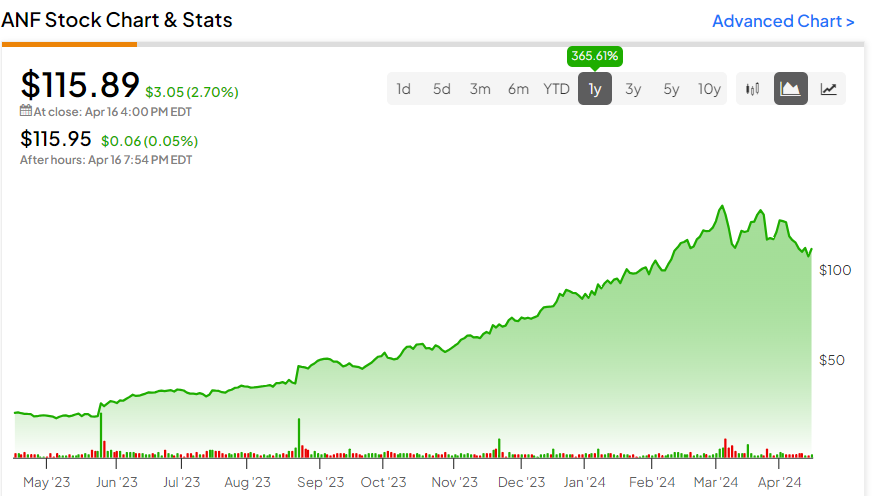Investing in firms has by no means been simpler.
With dozens of investing apps, 1000’s of firms to select from, and a number of methods to trace your investments, you may get began in a matter of minutes.
However earlier than you YOLO your life financial savings into the newest meme inventory, it’s essential to know what, precisely, you’re investing in.
On this information, we’ll stroll you thru, step-by-step, how you can put money into firms the best approach, in addition to cowl a number of methods to speculate. You’ll know how you can put money into personal or public firms, how you can consider an funding, and what it’s best to take into account earlier than you begin investing.
Publicly traded vs. personal firms
Earlier than you begin researching which firms you wish to put money into, it is advisable to know the distinction between publicly traded and personal firms.
- Publicly traded firms are, similar to they sound, accessible to most of the people. Their inventory may be traded on the open market. These firms are additionally required to report their monetary statements to the Securities and Trade Fee (SEC), which can be found for most of the people to overview. Usually, public firms are a lot simpler to put money into, with tradable shares accessible at most on-line brokers, and a quote market value that makes it simple to worth the corporate.
- Personal firms are owned wholly by the founders or workers of the corporate, and shares of its inventory aren’t traded on public markets. Investing in personal firms requires shopping for personal shares of fairness straight from the corporate, and it could have a excessive minimal funding. You’ll need to have entry to key personnel inside the firm (such because the proprietor, or investor relations crew), or have entry to fairness shares by way of a crowdfunding platform.
You possibly can put money into each publicly traded firms and personal firms, however the latter requires extra work (and presumably extra money).
Tips on how to put money into publicly traded firms
Generally, public firms supply shares of inventory which are traded on public inventory exchanges, making it a extra liquid, and less complicated, option to make investments.
Right here’s the method of investing in publicly traded firms:
1. Select the way you wish to make investments
There are a number of methods to put money into public firms, based mostly on how concerned you wish to be within the course of and your proclivity to do your individual analysis and investing.
- On-line dealer — For DIY traders, on-line brokers supply a easy (and cheap) option to make investments. You possibly can rapidly obtain a monetary app, create an account, and begin investing in particular person shares or ETFs with little-to-no charges. See our checklist of the very best on-line brokers.
- Robo-advisor — Robo-advisors are on-line investing platforms that routinely make investments your funds based mostly in your threat tolerance and investing objectives. After answering just a few questions, the robo-advisor builds you an funding plan, and routinely invests your funds based mostly on that plan. Additionally they embrace computerized rebalancing and tax perks, relying on the account. See our checklist of the very best robo-advisors.
- Monetary advisor — For hands-off traders, a monetary advisor may also help you along with your investing objectives and make it easier to construct a portfolio based mostly in your preferences. Monetary advisors sometimes make it easier to construct a diversified portfolio of funds somewhat than select single shares to put money into, so in the event you favor this strategy, discovering a licensed advisor could also be for you. Learn to select a monetary advisor.
2. Analysis every firm you wish to put money into
If you’re selecting to put money into particular person shares, it’s essential to do your analysis first. This contains reviewing the corporate financials, which may be discovered within the quarterly SEC filings (10-Ok) on the SEC web site.
Supply: Giphy.com
Some essential stats to know are:
- Firm income
- Web revenue
- Worth-to-earnings (P/E) ratio
- Earnings-per-share (EPS)
Evaluate what you discover with different firms as a benchmark and discover out what is taken into account “good” in that firm’s market sector.
You’ll additionally wish to reply just a few questions on how the corporate operates, together with:
- How does the corporate truly make cash?
- Is the management any good?
- Does the corporate have an edge on rivals?
- What are the dangers to this firm’s future success?
Pairing the solutions to those questions along with your monetary analysis may give you a good suggestion as as to if the corporate’s inventory is an effective funding or not.
3. Work out how a lot you wish to make investments
When you select your investing type and asset allocation, it is advisable to have a look at your private funds and decide how a lot you wish to make investments. When you can make investments frequently, this can make it easier to construct an investing place over time, making the most of dollar-cost averaging.
First, you’ll have to put collectively a finances to determine how a lot cash you have got left to speculate after paying your payments and different month-to-month expenditures. Then you’ll be able to allocate these funds towards your investing objectives. This will imply a portion goes towards retirement, whereas one other portion goes towards short-term investing objectives.
When you can, automating the investing course of is advantageous. This helps you decide to investing the identical quantity frequently and builds your portfolio routinely.
Learn extra: Investing vs. saving: Which must you do, when, and the way?
4. Monitor your investments
As soon as you start investing, you’ll want to observe your funding efficiency and portfolio. There are just a few nice apps that supply funding monitoring companies, in addition to funding recommendation.
Private Capital is a free funding app that helps you observe your portfolio efficiency, in addition to analyze your investing charges that will help you optimize your portfolio. Mint.com is a free budgeting app that additionally tracks your internet value and funding efficiency over time.
Each of those apps supply simple-to-use instruments that will help you carry on high of your funds, and observe your investments in a well-designed dashboard.
Tips on how to put money into personal firms
Investing in personal firms is a extra concerned course of and requires investing within the firm straight. That implies that as a substitute of buying inventory on a inventory trade, you take care of the personal enterprise itself.
Personal firms and small companies every supply distinctive benefits over public firm investments. You get to create a relationship with the enterprise homeowners, and you’ve got extra say within the firm’s inside workings. For instance, you will have some say in who will get elected to the board of administrators for that enterprise, and it’s possible you’ll even be a part of the board your self.
No matter whether or not you resolve to put money into a small enterprise or a bigger personal firm, the method of selecting the best firm stays the identical.
1. Select how you can make investments
Investing in personal firms may be achieved in just a few other ways:
- Crowdfunding — Crowdfunding websites are geared toward elevating capital by way of smaller investments. It is a higher strategy in the event you don’t have numerous capital to decide to an organization.
- Angel investing — When investing in a startup or brand-new firm, you’re thought of an “angel investor,” as you’re offering startup capital for use for getting the enterprise off the bottom. Angel traders are sometimes near the founders and have extra favorable phrases than later traders.
- Enterprise capital — As a enterprise capitalist, you’re committing capital as a part of the expansion technique of an present firm. If the corporate has already established itself, you should purchase a stake within the firm by committing funds for progress. That is often a bigger funding, and there may be an anticipated buyout or IPO to realize the majority of the return on funding.
2. Discover firms to put money into
There is no such thing as a scarcity of firms you’ll be able to put money into, irrespective of how a lot or how little expertise you have got available in the market. Nonetheless, discovering them takes time and analysis.
Many platforms throughout the net supply details about startups in addition to small and personal firms. Platforms like Equities News, Crunchbase, and Crowdfund Insider have info, and a easy search can present you personal firms and potential funding alternatives.
3. Analysis and meet with the homeowners (if doable)

Supply: Giphy.com
Whenever you discover a personal firm that reveals progress and sound enterprise practices, make an inventory of inquiries to ask the homeowners. Have a look at their monetary statements, market, company governance paperwork, and different related info.
Learn extra: Tips on how to learn an organization’s earnings report
Speaking with the homeowners may make it easier to confirm info that may be tougher to search out, like their financials.
Ask detailed questions if you meet with the proprietor. Transcend the basics, and focus on:
- Who makes use of their product and why it’s profitable
- How their product will change their market
- Enterprise errors and the way they’ve recovered from them
- Who else backs them and believes of their potential
4. Analysis their working fashions
You wouldn’t purchase a enterprise’s product if it didn’t work. The identical idea goes for the corporate itself. If it doesn’t have a profitable working mannequin or present optimistic progress, it’s not a worthwhile funding.
A great monetary mannequin ought to present:
- Budgeting functionality
- Debt and fairness
- Asset acquisitions
- Allocation of funds
This mannequin also needs to present you the place the corporate will get its funds, its market worth, and no matter essential assets wanted for it to realize its enterprise objectives. The mannequin additionally signifies whether or not the corporate will use your funding correctly.
5. Negotiate your funding phrases
Whenever you put money into a personal firm over a publicly traded one, you have got the chance to barter your funding phrases (often). Whenever you negotiate, it’s best to ask questions on participatory and safeguarding measures akin to:
- How will the corporate use my funding?
- Will the corporate pay me dividends or a portion of its revenue?
- How will the corporate talk with its traders?
- Will I be capable of take part as a board member?
- Do I get to vote on firm choices?
- Will the corporate ask for my approval for spending greater than a specific amount?
- What’s your exit technique?
You also needs to know whether or not you wish to make a debt funding or an fairness funding. Whereas each can flip into profitable ventures for you, they differ in how you purchase and promote them. You’ll additionally want to regulate your funding technique based mostly upon which one you wish to concentrate on.
6. Finalize your deal
When you’ve negotiated your phrases with the corporate, you’ll be able to shut in your funding. At this level, you’ll see extra paperwork, even in the event you’ve already signed a non-disclosure settlement (NDA) and different confidentiality paperwork prior to now.

Supply: Giphy.com
Whenever you buy a share of an organization, you’ll be able to count on to learn and signal the next agreements:
- Time period Sheet
- Inventory Buy Settlement
- Disclosure Schedule
- Registration Rights Settlement
- Voting Settlement
- Proper of First Refusal and Co-Sale Settlement
- Certificates of Incorporation
- Authorized Opinion
- Accredited Investor Certification
- Signature Pages
If it looks like loads, it’s. Nonetheless, these agreements exist to guard each you and the corporate during which you’re investing. By reviewing and signing them, you’ll be able to discuss with the corporate’s proprietor about your phrases and be taught what your funding means for each of you.
Issues to contemplate when investing in an organization
Investing is extremely private and investing in public or personal firms comes down to private choice, investing objectives, and sum of money (and time) you want to make investments.
Right here are some things that each investor ought to take into account when seeking to put money into an organization:
- Progress — Is the corporate rising? Begin by wanting on the income progress year-over-year and study the web revenue as properly. You need each to be trending up.
- Debt — If an organization is rising income and revenue, however has numerous debt, this may be dangerous. Look for a corporation with a wholesome debt-to-equity ratio. Ideally, an organization can have a 2:1 debt-to-equity ratio (or decrease), that means at the least 33% of its funding is from shareholders.
- Competitors — Is the corporate in a extremely aggressive market? Does it have a bonus that it could possibly preserve? It’s essential to grasp the market and overview the rivals in an business earlier than investing in an organization. Ideally, the corporate has a “moat,” or aggressive benefit that it could possibly dangle onto for a very long time.
- Administration — Management is vital, and if the CEO or different key executives are underperforming, your entire firm will undergo. Look for a corporation with extremely certified leaders who’ve a observe file of success.
Abstract
Whereas investing apps have made investing in an organization so simple as tapping your display, this doesn’t imply you’ll routinely change into rich. In reality, many particular person investments lose cash in comparison with the general market, which is why passive investing is on the rise.
However in the event you put within the time and analysis wanted to search out private and non-private firms that supply worth, you’ll be able to put money into high quality firms which have the potential to outpace the market.
Investing in public firms is simple, and most investing apps provide you with entry to fee-free buying and selling of shares. Investing in personal firms is considerably tougher, however the potential returns may be a lot increased.
Total, discovering good firms to put money into requires time and persistence to coach your self on every firm earlier than you commit your cash to them.







